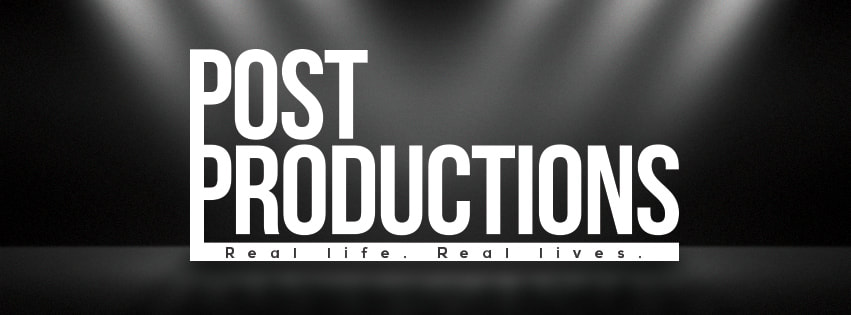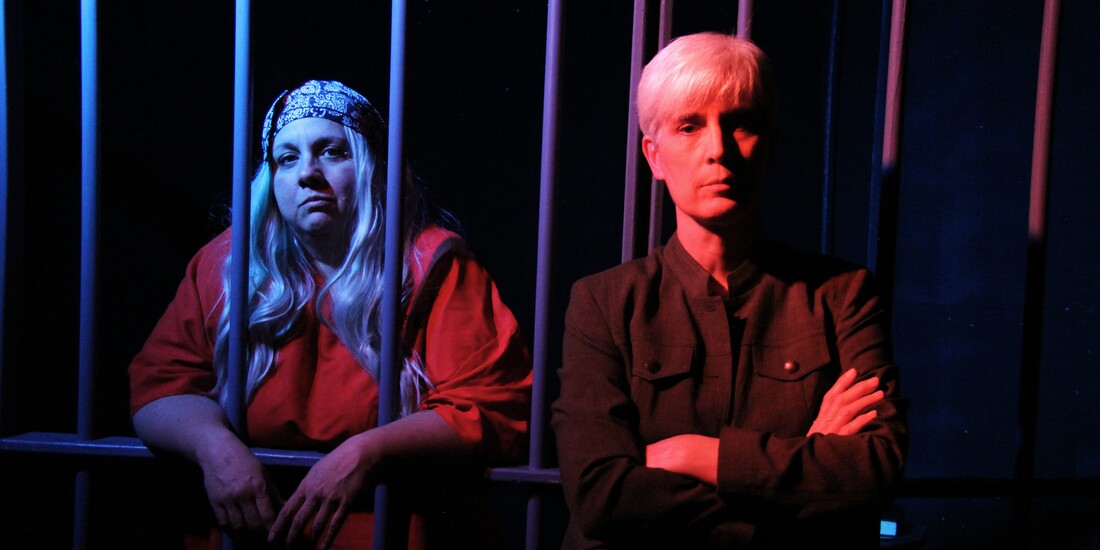|
"The conversation is what drives the play. As both characters trade points, The Anarchist’s revolves around the idea that everyone has two choices in life: Either submit or rebel."
"This play is a tennis match. There is a constant push and pull with the characters. In turn, they are both the ball and the racket. The connection between Cathy and Ann is there throughout and you see these two have a past, that there is a veiled affection, or at least appreciation for the wit, intelligence and ‘faith’ each possesses. You wonder if they could have been friends in another life. The audience will feel pulled in by their charm and punched in the face by their humanity." The Anarchist by David Mamet continues at The Shadowbox Theatre for THREE MORE PERFORMANCES on April 18, 19 & 20. For more details check out the interview from Marc Rocheleau at Windsorite.ca, which you can access here: https://windsorite.ca/2024/04/local-theatre-asks-complicated-questions-in-stripped-down-play/
0 Comments
|
ARCHIVE
4/18/2024 - THE ANARCHIST - Interview by Marc Rocheleau for Windsorite.ca 4/15/2024 - REVIEW - The Anarchist by David Mamet 4/11/2024 - THE ANARCHIST - Article 4/2/2024 - THE ANARCHIST - Meet the Cast 3/20/2024 - The 2024 Edele Winnie Women's Monologue Competition - Meet the Judges 3/17/2024 - The 2024 Edele Winnie Women's Monologue Competition - Meet the Contestants 3/12/2024 - REVIEW - Vitals by Rosamund Small 3/1/2024 - 4.48 PSYCHOSIS & THE EVENT - Interview with playwright John Clancy 2/19/2024 - 4.48 PSYCHOSIS & THE EVENT - WindsoriteDOTca Interview 2/19/2024 - 4.48 PSYCHOSIS & THE EVENT - 519 Magazine Article 2/13/24 - 4.48 PSYCHOSIS & THE EVENT - Meet the Cast 12/12/2023 - FIRST NIGHT - Interview with playwright Jack Neary 12/5/2023 - Sketchy Jésus and the Questionables 11/2/2023 - THE CASE OF THE ODD SHAPED GAS TANKS - 519 Magazine article 11/2/2023 - REFRAMED - 519 Magazine article 10/14/2023 - HANGMEN - Windsorite article 9/21/2023 - HANGMEN - Meet the Cast 6/21/2023 - MIRABELLA - Trailer 6/6/2023 - MIRABELLA - Interview with playwright Joey Ouellette 6/2/2023 - MIRABELLA - Meet the Cast 4/2/2023 - GLENGARRY GLEN ROSS - Meet the Cast 3/7/2023 - The 2023 Edele Winnie Women's Monologue Competition - Meet the Judges 3/7/2023 - The 2023 Edele Winnie Women's Monologue Competition - Meet the Contestants 1/20/2023 - THE CHILDREN - Meet the Casts 11/25/22 - Pirate Attack on the 1C Bus Going Downtown - Interview with playwright Joey Ouellette 11/19/22 - Pirate Attack on the 1C Bus Going Downtown - Meet the Cast 10/25/2022 - Announcing the winner of THE 2022 WINDSOR-ESSEX PLAYWRITING CONTEST 9/28/2022 - STUCK - Interview with playwright Jonathan Tessier 9/14/2022 - STUCK - Meet the Creative Team / Cast 8/22/2022 - A GREAT ROUND WONDER - Interview with playwright Barry T. Brodie 8/9/2022 - A GREAT ROUND WONDER - Meet the Cast 6/5/2022 - PREPARED - Meet the Cast 5/31/2022 - PREPARED - Interview with playwright Kari Bentley-Quinn 4/19/2022 - Interview with playwright Edele Winnie 11/10/2021 - DEAD BEAR - Meet the Cast 11/5/2021 - DEAD BEAR: Interview with playwright John Gavey 9/12/2021 - BLASTED: Meet the Cast 7/2/2021 - CRIMINAL GENIUS: Meet the Cast 3/10/2021 - NEGATUNITY: interview with playwright Matthew St. Amand 3/10/2021 - NEGATUNITY: Meet the Cast 11/16/2020 - THE BEAUTY QUEEN OF LEENANE: Meet the Cast 10/5/2020 - FATBOY: interview with playwright John Clancy 7/16/2020 - Winner: 2020 Playwriting Contest 6/23/2020 - Announcement: Nikolas Prsa joins Post as Outreach Director 3/15/2020 - BETRAYAL - Meet the Cast 1/18/2020 - PRY IT FROM MY COLD DEAD HANDS: interview with playwright Edele Winnie 1/15/2020 - PRY IT FROM MY COLD DEAD HANDS: Meet the Cast/Crew 11/4/2019 - THE PILLOWMAN: Meet the Cast/Crew 9/18/2019 - AUTOPSY & A HAUNTING IN E FLAT: interview with playwrights Alex Monk & Joey Ouellette 8/29/2019 - AUTOPSY: Meet the Cast 8/29/2019 - A HAUNTING IN E FLAT: Meet the Cast 5/31/2019 - AMERICAN BUFFALO: Meet the Cast 3/31/2019 - NOTHING BUT THE TRUTH: Meet the Cast 3/19/2019 - NOTHING BUT THE TRUTH: interview with playwright Eve Lederman 2/25/2019 - So You're Writing a Play... 1/17/2019 - NO EXIT: Meet the Cast 11/22/2018 - ANOTHER FUCKING CHRISTMAS PLAY...: Meet the Cast & Composer 8/28/18 - EQUUS: Meet the Cast/Crew 7/15.2018 - SHELTER IN PLACE: Meet the Playwright 7/9/2018 - SHELTER IN PLACE: Meet the Cast 7/2/2018 - Writing to be Read 5/3/2018 - STOP KISS: Meet Fay Lynn as Callie 4/10/2018 - STOP KISS: Meet Lauren Crowley as Sara 4/27/2018 - STOP KISS: Meet Dan MacDonald as George 4/25/2018 - STOP KISS: Meet Matt Froese as Peter 4/21/2018 - STOP KISS: Meet Cindy Pastorius as Mrs. Winsley / Nurse 4/18/2018 - STOP KISS: Meet Alex Alejandria as Detective Cole 1/24/2018 - DOUBT: Meet Niki Richardson as Sister Aloysius 1/17/2018 - DOUBT: Meet Eric Branget as Father Flynn 1/10/2018 - DOUBT: Meet Carla Gyemi as Sister James 1/3/2018 - DOUBT: Meet Jennifer Cole as Mrs. Muller 10/2/2017 - TRUE WEST: Joey Wright as Austin 9/25/2017 - TRUE WEST: Dylan MacDonald as Lee 9/18/2017 - TRUE WEST: Ian Loft as Saul 9/11/2017 - TRUE WEST: Cindy Pastorius as Mom |
Copyright © 2017

